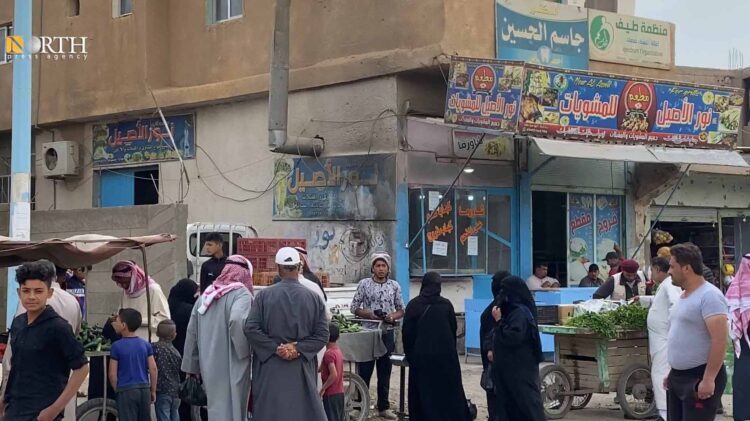Dealers in Deir-ez-Zor, east Syria, expressed their hope that the U.S. decision to allow companies to invest in northeast Syria would improve the economic situation.
On May 12th, the U.S. Department of the Treasury’s Office of Foreign Assets Control (OFAC) issued Syria General License (GL) 22, authorizing specific economic activities in some non-government-held regions of the northeast and northwest.
Musa al-Jazza’, a building materials trader from the Deir-ez-Zor governorate, said that lifting the Caesar Act sanctions will facilitate the movement of transport at the border crossings. This will reduce the burdens on the affected population to purchase building supplies.
According to traders, the price of a cement block is about 1,000 Syrian pounds, and a ton of iron is about 920 dollars, while a ton of cement is sold at about 93 dollars.
Manji Abdullatif, a food trader, said that the entry of foreign companies to invest in the region “will contribute to facilitating commercial work at lower costs than before. It will create an environment of competition among traders that can reduce prices,” he told North Press.
The countryside of Deir-ez-Zor witnesses deteriorating economic conditions and almost paralyzed commercial movement due to an unprecedented rise in the prices of materials at all levels.
The lifting of the sanctions means that there is no need to “pay additional taxes and fees, which was a major obstacle that rises prices. This would make it easier for the traders to import goods without incurring high costs other than the due costs,” Abdullatif told North Press.
Salman Barudo, the co-chair of the Economy and Agriculture Board of the AANES, said that the investment law, when issued, would give confidence to investors and encourage them to invest.
“Foreign companies were afraid of making investments in the region because of the U.S. sanctions imposed on the Syrian government,” Barudo added to North Press.
This article was edited by The Syrian Observer. The Syrian Observer has not verified the content of this story. Responsibility for the information and views set out in this article lies entirely with the author.


